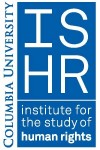
Obama in Burma: Rewarding Cosmetic Changes?
By Hal Levy, undergraduate student at Columbia University
The White House moved with uncharacteristic speed to announce a surprising foreign policy initiative two days after President Obama’s reelection. He was going to Burma and it was happening right now, less than two weeks after the votes were counted, and because he decided that everything would happen so quickly it was far too late to haggle over his itinerary, which by the way was already in place. “Why scrutinize this?” was the implicit message to human rights activists, “because we don’t want your input this time.”
However, this landmark engagement with the current Burmese regime warrants scrutiny and at the very least revision if it is to go forward. Burma is finally opening to Western investment, but Obama must not abandon America’s responsibility to protect potential Burmese workers in favor of geopolitical games and economic opportunity. Fraudulent elections held in 2010 transferred power to a mixture of civilians and military-appointed candidates in name...
